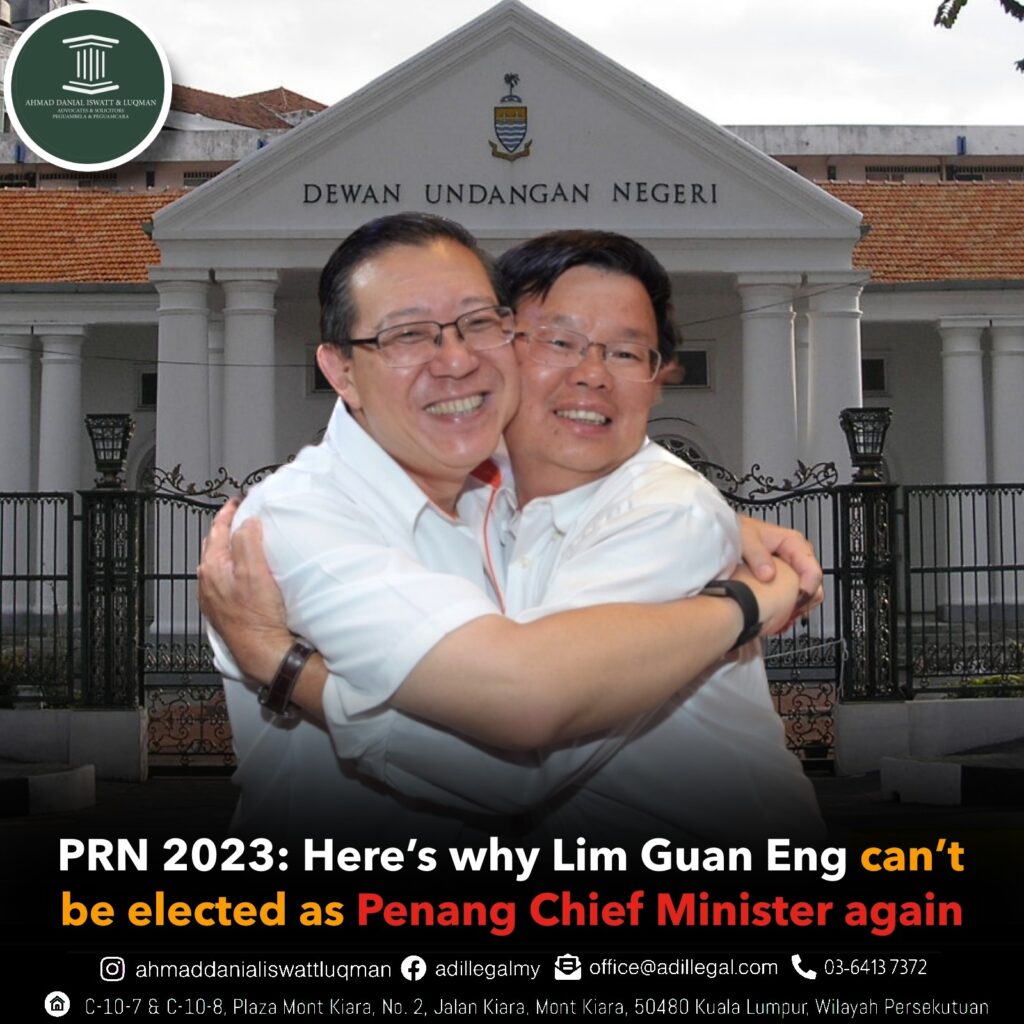
PRN 2023: Here’s why Lim Guan Eng can’t be elected as Penang Chief Minister again
Malaysians are going to the polls again, well, at least some of them, as the 2023 State Elections (PRN 2023) is now underway. Involving six states which didn’t dissolve their respective Legislative Assemblies (DUNs) during or prior to the 15th General Election (GE15), many analysts see this as an opportunity to gauge our country’s political climate post-GE15.
Speaking of which, there has been some speculation in Penang regarding an alleged change in leadership for the state’s top post. Popping up long before the Penang DUN was even dissolved, rumours suggest that the ruling party there, DAP, may pick someone else other than current caretaker Chow Kon Yeow as Chief Minister (CM) should they retain the state.
Despite DAP and Pakatan Harapan (PH) already announcing Chow’s name as the sole CM candidate, the rumours still persist, with many suggesting that former Finance Minister Lim Guan Eng may become Penang CM again.
Nevertheless, despite Lim being one of the old faces that remain in DAP’s candidate list in Penang, a return for the Bagan Member of Parliament (MP) as CM is simply not possible. Even if he wins the Air Putih seat he’s contesting by a landslide.
So, why is this so? Well, join us as we dive into the Penang State Constitution to find out.
Appointment of the Penang CM
The appointment of the Penang CM is governed by Article 7 of the state’s Constitution. According to the provision, the CM would preside over the state’s Executive Council. Furthermore, the provision prescribes that the CM is appointed by the Yang di-Pertua Negeri among the members of the DUN, who in his judgement is likely to command the confidence of a majority of the Assembly.
Accordingly, the decision on who would become the CM post-PRN would lie on the current Yang di-Pertua Negeri, Tun Dato Seri Utama Ahmad Fuzi bin Abdul Razak according to his best judgement on the matter. Should DAP and PH win the majority and he believes that Chow, should he also win in Padang Kota, likely commands the majority of the DUN, then the incumbent would retain his position as CM again.
On the flip side, should all the scenarios above come to be but the Yang di-Pertua Negeri believes that Lim, should he win in Air Putih, likely commands the majority of the DUN, appointing him as CM is out of the question. This is thanks to an amendment to the Penang State Constitution passed by the DUN on 16 November 2018.
Amendment to Article 7 of the Penang State Constitution
Tabled by Chow during the DUN seating on the aforementioned date, the amendment adds an additional sub-clause 7(A)(ii) to the Penang State Constitution. The amended clause essentially put another prerequisite to the appointment of CM, whereby an individual who has held the position for 2 terms may no longer be appointed again.
Article 7(A)(ii) reads,
“a member of the Legislative Assembly may be appointed as Chief Minister if they have not at any time held the position for two terms.”
Part of the institutional reforms brought forth by the PH Penang State Government, the amendment makes the state the first in the country to table and pass a motion of setting a two-term limit for the CM position. The DUN unanimously voted in favour of the motion in 2018 except for 3 opposition members who abstained, thus the amendment was approved after passing more than a 2/3 majority.
With the amendment, Lim is now out of contention for the post, as he had already held the CM position for two terms, from 2008 to 2018. Moreover, Chow is still eligible for the CM position as he had only become CM for one term, from 2018 to 2023.
The only way for Lim to become CM again is if he wins the Air Putih seat this 12 August and afterwards, have the Penang DUN table and approve a motion to amend the 2018 amendment on the two-term limit; a series of events that are very unlikely to happen. Regardless, that hypothetical scenario is a discussion for another day.
Moving forward, it would be interesting to see the results of the PRN in Penang, as well as in the other 5 states. Let’s hope that the voting process runs smoothly and that democracy continues to flourish in Malaysia.
For more insights into the Malaysian legal system such as this, do make sure to follow us on Facebook and Instagram or visit our official website. You can also read our articles on the popular Malaysian news aggregator app Newswav here.






